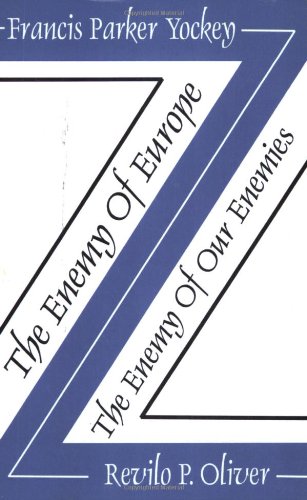Description
WHEN Francis Parker Yockey completed and published Imperium in 1948, he wrote a comparatively short sequel to his major work. This sequel, which he later entitled The Enemy of Europe, is now lost, but he had his manuscript with him when he was in Germany in 1953, and, after revising two passages, had it translated into German before printing two hundred copies at Frankfurt-am-Main. Yockey’s work displeased the Jews, who ordered their henchmen to raid the printing plant, punish the printer, smash the types, and destroy all copies of the book. Yockey escaped having already sent several copies abroad, and it is from a photocopy of one of these that Yockey’s English text was restored, as far as possible.
The Enemy of Europe is a work of philosophical, historical, and political significance because
1) In it Yockey applies to the contemporary situation of the world the philosophy of history that he elaborated in Imperium, much as Spengler had to the world of 1933.
2) It is the earliest coherent expression of a political attitude in Europe which first became manifest to Americans in the late 1950s and which at present largely determines the conduct of various European nations in their relations with the United States and the Soviet Union. This attitude, which is generally misunderstood because in public Europeans use only equivocal or vague terms to intimate or disguise what Yockey said explicitly, which was subsequently imitated in other parts of the world in such terms as ‘neutralism,’ ‘uncommitted nations,’ and ‘The Third World.’
3) Yockey’s analysis of the situation when he wrote poses today the most urgent question before intelligent Americans and, indeed, all other members of our race–a question of political fact that each of us must solve before estimating the chances of survival for our people.






Reviews
There are no reviews yet.